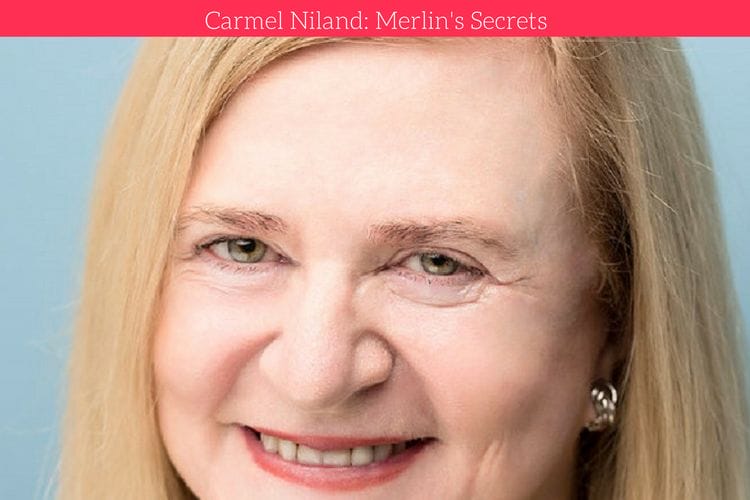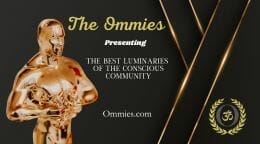Carmel Niland: Merlin’s Secrets

An Interview with Carmel Niland: Merlin’s Secrets
Carmel Niland gives us this gift with a little bit of a twist in the first novel in her series of “Merlin’s Secrets.” It’s called “A Darker Magic This Way Comes.”
Carmel, a true renaissance woman, is as fascinating a character as the ones she creates. In public, Carmel has been a formidable leader, a CEO working for the largest state government of Australia, heading multifaceted agencies that champion gender and racial equality, human rights, child protection, and disability  services.
services.
In private, she’s been fascinated with historical legends, particularly the tales of King Arthur and his famed magician Merlin.
For decades, Merlin captivated her imagination. Blending her keen interest in the Arthurian legend with a passion for Roman-British archeology, Carmel devoured every piece of literature she could get her hands on and visited every Iron Age and Roman fort in England, Scotland, and Wales, crossing hill and dale and climbing fortifications associated with Arthur.
This desire for knowledge about the once and future king compelled her to use her research to reimagine his and Merlin’s story.
Now, she has created her first novel based on the ancient legends. “A Darker Magic This Way Comes” is the first book in a series of five for readers who, like her, love secrets, mysteries, something strange, and beautiful.
Victor Fuhrman: Carmel, you know, with all your accomplishments and activities, you must’ve tapped into Merlin’s magic.
Carmel Niland: I have spent a long time with Merlin. I first met him in Ithaca, New York, teaching grade eight at DeWitt Junior High School in the magical ’60s and ’70s.
Victor Fuhrman: Wonderful. And that was in the ’60s and ’70s.
Carmel Niland: Yes, the time of the death of Martin Luther King, the death of Robert Kennedy, the man on the moon, the Chicago Convention, Kent State, all those things happening at a tumultuous time. And they affected my whole being.
Victor Fuhrman: Now, have you always been a romantic at heart?
Carmel Niland: I’ve always had a kind of quirky scientific inquiry that went with it because I was never interested in the reality that was presented to me. I was always more interested in the, why is that being presented?
Victor Fuhrman: There’ve been many television presentations speculating on the legend and, recently, one featuring British author Graham Phillips, who claims to have found evidence of the historical Arthur. You’ve done your extensive research and exploration. What have you found?
Carmel Niland: What I’ve found is where there’s smoke, there’s fire. And because I concentrate on Merlin, who’s the ultimate trickster, he’s like Leonardo da Vinci, brilliant, a genius, but with a wand.
So, if you can imagine the kind of person who could create, who could dredge harbors, recreate harbors, build castles, and we’ll put that in inverted commas because they were more like forts than castles.
So, I became fascinated with him and then, through him, came to Arthur. But, the key questions about Arthur is not only the quest for the Grail and did he exist historically, but it’s also the fact that the Arthurian story is about the return of Arthur. Where is he now? When’s he coming back? And how’s it going to happen?
I believe Arthur was a historical character. I believe Merlin was a historical character. There are footprints there if you know where to look for them.
Victor Fuhrman: Be they historical or legendary or mythical, some of the qualities and some of the concepts and the ideas are timeless and certainly needed in a time such as we live in.
Carmel Niland: Merlin, clever man that he was, was a brilliant communicator. But, he had to develop a different way to get out the story of Arthur and his knights and their lives and their pursuits and their quests. Merlin had to gather together all the existing troubadours or bards of Wales and tell them stories and tell them slightly different stories and then show them how they could convert that into verse and how they could sing it. So, we’ve got this amazing oral tradition which was just like a fan dance. He had to leave far more questions, far more glimpses than actual pass on reality.
Victor Fuhrman: So, each bard and troubadour acted almost like the game of telephone that we played when we were children, taking that story, enhancing it to their time, and sending it out.
Carmel Niland: And he never insisted on uniformity. And he did not necessarily insist on truth either. But, that didn’t matter. They were trained in an oral tradition. And so, they passed it on.
But, it went through a fascinating metamorphosis. It left Wales, went to Cornwall; it went to Brittany because the inhabitants of Cornwall at the time and Brittany were identical.
And then it moved from Brittany into France. And as it moved through the courts of France, it will come to its greatest flowering in the Medieval ages in the court of Marie de Champagne. Marie had around her a series of troubadours and a man called Chretien de Troyes. And then he started to write these stories of the Welsh troubadours down, and as he wrote, the Arthurian legend took on a completely different set of legs and went up through Germany, around France, all the way to Italy.
And it invented in the process chivalry. So, one of the great sacrifices of the love of Guinevere to Sir Lancelot created a movement which put women on pedestals. And it was the first step, if you like, of women’s liberation.
Well, we’ve then got this wonderful flowering that came around the Renaissance, where the story of Arthur, his knights, of Merlin, of Percival, the quest for the Grail, will reemerge in famous operas, will reemerge in plays. It will reemerge in poetry. It will reemerge in song.
And now, where we are now, we’re going to see it again early in the New Year when Guy Ritchie releases his latest movie, which is called “King Arthur and the Legend of the Sword.” So, it’s still going.
So, Merlin, the ultimate magician, trickster, released something over 1,500 years ago. And it’s still blossoming.
Victor Fuhrman: A little more on the Arthurian legend, it begins with his father, King Uther Pendragon. Other than the literary references, have you found any historical evidence for Uther?
Carmel Niland: Yes, there is a poem in Welsh which is the death song of Uther Pendragon. And of course, there is also part of the legend, which is in some the documents that were written by early priests or clerics or monks in various monasteries.
Other than that, we’ve got a historical reference for him in one of those monk’s writings, where he talks about a man, Uther, who was tall. And like me, he was red headed.
And he is tumescent with lust for a woman that he has seen who is the wife of the Duke of Cornwall.
She had hair the color of ice. And Merlin would use his artifice to get Uther to go into the castle, where she lived.
He would create by hypnosis an image for Uther, who was sneaking into this place, that he took on the form of her husband. And they consummate their passion. Because of that consummation, Arthur would be born.
Victor Fuhrman: Now, what does the name or title Pendragon mean?
Carmel Niland: Pendragon, pen, which is right to our Cornwall in goodness knows how many names, like Penzance, means head, he would be the head dragon.
So, the dragon was a person who was militaristic. And he could roar. And he gave the impression that he could fly because he could, whether he was on a ship, a boat, or whether he was on a horse, he would be riding ahead of everybody.
Now, in Roman times, they had a windsock which was attached to a lance and was carried high. And at the front of the windsock, the wind goes into the sock at the back, and then out the front, there was a kind of a head of a dragon. And the air would rush through, and it would roar.
Now, the Romans used that for great effect. And Pendragon used it as well. There are a lot of stories as to how he got his name.
Victor Fuhrman: So, the concept and the title of Pendragon could be compared to what we would call the commanding general today.
Rev. Victor Fuhrman, MSC, is a healer, spiritual counselor, and author whose deep, rich, compassionate and articulate sound inspired the radio handle, “Victor the Voice”. A former armed forces broadcast journalist, Victor Fuhrman is a storyteller by nature and an inspiring public speaker. He brings unconditional love, compassion and a great sense of humor to his ministry. Victor is the Host of Destination Unlimited on OMTimes Radio, Wednesdays at 8:00 PM ET. http://omtimes.com/iom/shows/destination-unlimited/









